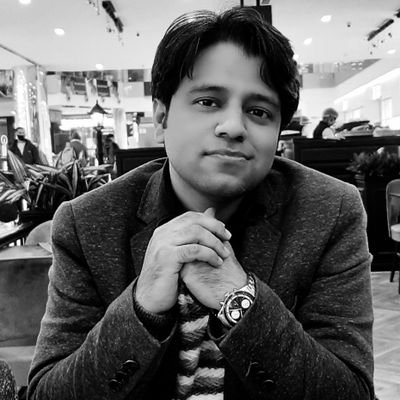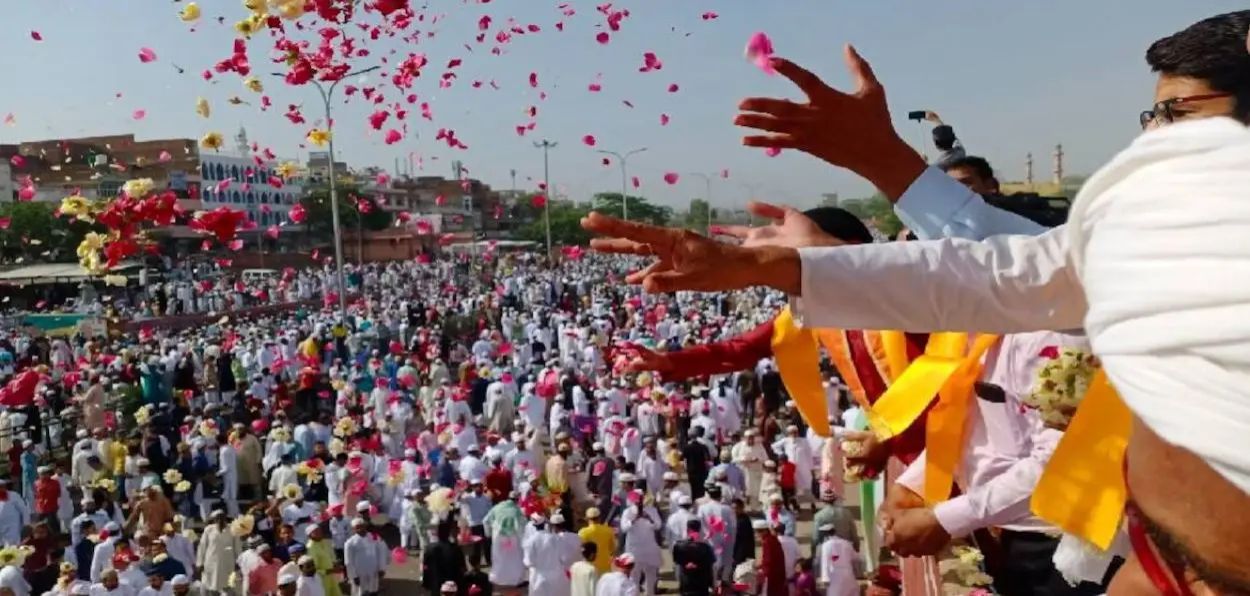.webp)
 Saquib Salim
Saquib Salim
In Ramzan of 2019, more than 1200 Islamic Scholars and 4500 Muslim intellectuals from 139 countries representing different ‘sects’ of Islam came together in Makkah under the banner of the Muslim World League to bring out The Charter of Makkah. Chairman of the Supreme Commission for the Makkah Charter, Mohammed bin Abdulkarim Al-Issa, declared, “Through the texts of this document, muftis and scholars of the Muslim world have expressed being an active part in this world with its various nations, peoples, and commonalities. And like others, they are striving to achieve positive interactions and communication with everyone else to accomplish comprehensive peace and harmony; happiness and the fair well-being of mankind, they vie to extend bridges of affection, brotherhood and human cooperation.”
While several scholars claimed, “The Charter falls within the great principles of coexistence laid down by the 'Constitution of Medina”, its detractors say, “the charter seeks to centralise the authority to a state-managed version of religion” and serves to normalise “the oppressive state of affairs for Muslims around the world”.
As an Indian Muslim, who does not claim to be an Islamic scholar, I find the text of the charter very relatable to what I have heard from our elders, maulvis and other Muslims while growing up in North India. This might be a novel achievement for the Islamic World of the Middle East or the European Muslims, but the thoughts and ideas contained in the charter have been instruments of faith for the Indian Muslims for centuries now.
The charter contains 30 points, and the concluding one says, “Only learned scholars such as those gathered at this Conference and agreeing to this Charter can speak in the name of the Muslim Ummah, or any matter about its affairs.” The statement might seem disturbing to those believing in the Western Concepts of democracy, where every human is equal to others, but not to the Indian Muslims who have grown up with Iqbal’s couplet, “jamhūriyat ik tarz-e-hukūmat hai ki jis meñ, bandoñ ko ginā karte haiñ taulā nahīñ karte” (Democracy is a form of government where we count the people and don’t take into account their capabilities).
The idea is not as anti-democratic as it seems. It conveys a popular saying of the Prophet in the context of the superiority of scholars over others. The scholars were called the successors of the Prophet in spreading the word of Allah. Another outcome of this thought has been a much criticised stand of the Indian Muslim Ulema that not every Muslim is qualified to debate on religious matters. They say that a certain religious scholarship and training are required for arguing over religious jurisprudence. This commonly held belief of Indian Muslims finds important mention in the charter.

 Hindus showering petals to honour Muslims as they return after offering Eid Namaz in Jaipur
Hindus showering petals to honour Muslims as they return after offering Eid Namaz in Jaipur
Point 5 of the charter states, “God revealed Himself to all mankind and is the origin of all religious belief, and its various messages and methods, when practised in their true form.”
I don’t know how novel this idea is for the Muslims living in other parts of the World, but we have been raised in a culture where our elders told us that religious symbols and personalities of other religions like Hinduism, Buddhism, etc. should be respected. Indian Muslims always believed that Hinduism, in its true essence, is a monotheistic religion and that the different gods worshipped in India were ‘messengers of God’. Apart from oral traditions, one can find these thoughts in several Indian Islamic writings like that of Mirza Mazhar Jan-i Janan.
Point 15 of the charter has actually been criticised by many. It says, “The phenomenon of Islamophobia results from an inability to truly understand Islam. True understanding of Islam requires an objective view that is devoid of stereotypical and prejudicial notions, which are often projected by those falsely claiming to be true Muslims.” The critics say that this statement blames Islamophobia on the victims, i.e. Muslims, rather than calling out the wrong portrayal of Islam by non-Muslims, which leads to hate against those professing Islam.
This notion is also commonly held amongst Indian Muslims. The basic premise of the Tablighi Jamat Movement, which originated in West Uttar Pradesh, is to develop a true understanding of Islam among people who call themselves Muslims. Khwaja Hasan Nizami, a Sufi scholar, asked people to follow ‘true Islam’ so that people of other faiths feel comfortable around Muslims, which in turn might inspire them to learn about Islam.
This belief that Muslims are suffering because they have stopped following ‘true Islam’ can be heard from even illiterates in the Indian Muslim society. It does not absolve others of creating an atmosphere of hate, but the belief is that nobody can ‘harm’ a ‘true Muslim’.
Point 27 of the charter lays down, “We must combat intellectual extremism along with militancy, violence or terrorism, by helping raise awareness among youth and guiding them according to the Islamic values of tolerance, peace and harmonious coexistence.” In fact, the charter talks against terrorism multiple times.
It is a fact that among those terrorists who legitimised their actions through some interpretations of Islamic texts, almost nobody was from India. Al-Qaeda, ISIS, Lashkar-i-Taiba, etc, all originated in different countries other than India.
India, with the second-largest Muslim population and home to several Islamic movements like Deoband, Bareilly, Tablighi Jamat, etc., never became a breeding ground of terrorism. Unlike Pakistan, Indian Muslims never participated in violent activities. A few incidents on Indian soil in the name of Islam were carried out by the Pakistan-based terrorist organisation. Indian Ulema of Deoband, Bareilly, Tabligh, etc, have always preached peace.
ALSO READ: Makkah Charter is a global blueprint for peace in 21st century
In a global context, the Charter of Makkah was a novel interpretation of Islamic laws in accordance with modern society, but as an Indian Muslim, it reiterates our centuries-old belief in peace, coexistence and harmony.
